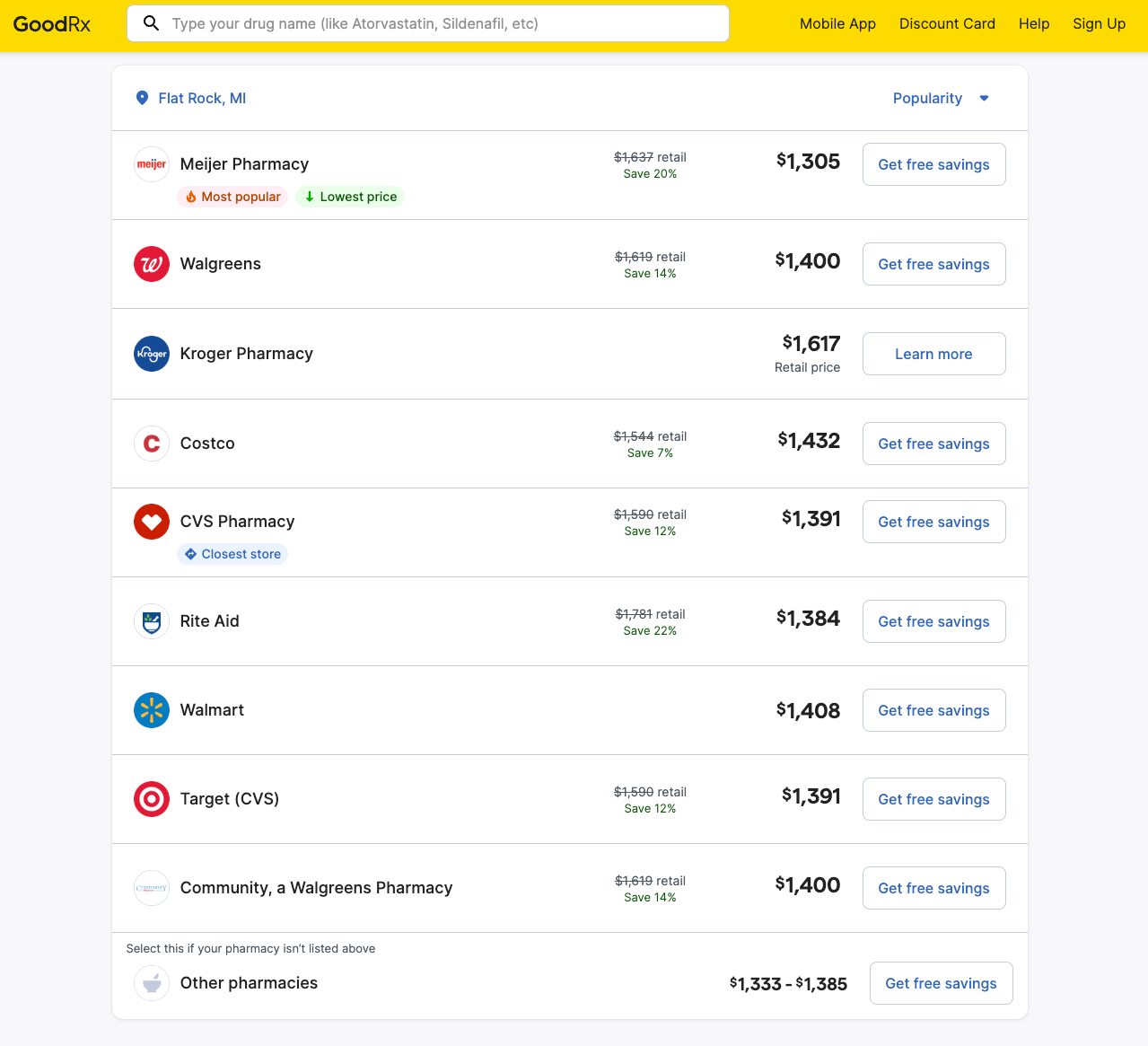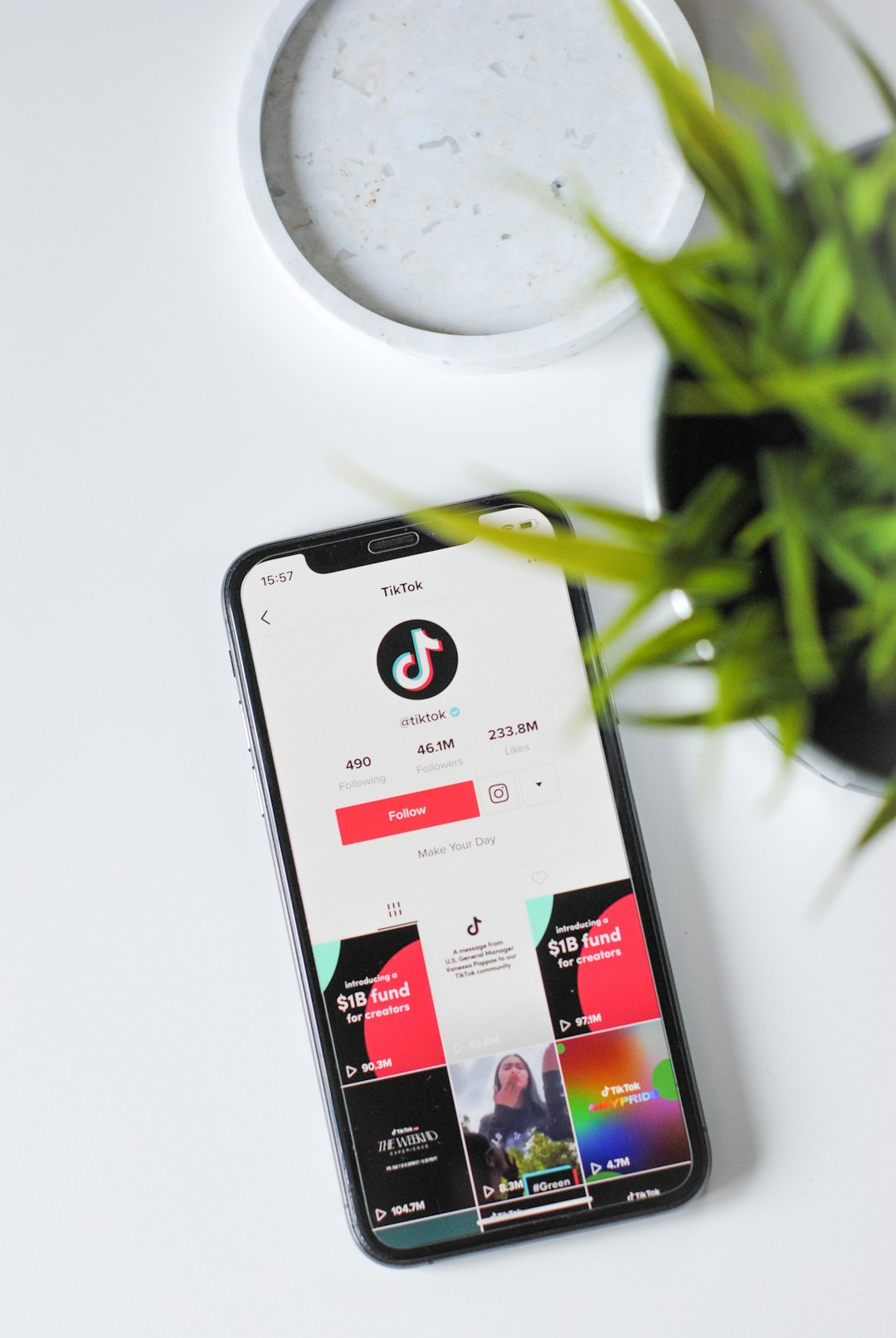TikTok poses a public health concern
Plus: Another lawsuit against Biden's HHS and yes, there is a physician impending physician shortage
Good morning and happy Friday. This is your weekly digest of healthcare news analysis from your friends at Fulcrum Strategies we call the Friday Pulse Check.
In the news:
Another lawsuit against Biden’s HHS
Tarren Bragdon and Stewart Whitson from the Foundation for Government Accountability are suing the Biden Administration for not implementing a Trump-era rule that required insurance carriers to publish their drug pricing information. They are taking issue with the fact that the president is concerned about the rising costs of drugs yet not enforcing transparency rules that might lower drug costs. Read more in the New York Post.
To them, I say this: get in line. President Biden’s Department of Health and Human Services has a really lousy track record of enforcing price transparency rules. That includes this issue, hospital prices, and (of course) the Qualified Payment Amount (QPA) for the No Surprises Act. The only one of these that should be of any concern right now is the QPA since HHS’ lack of enforcement has allowed the carriers to artificially lower that number. Fortunately for us provider advocates and physicians, we might have a ruling on that lawsuit as soon as June.
Physicians consider retiring as compensation drops
This headline shouldn’t surprise anyone. Ron and I even discussed this on the FLATLINING Podcast this week in the context of our impending physician shortage in the United States. We just came out of the worst pandemic in our country’s history and Congress’ response to physicians was “here is a pay cut for Medicare patients” (which, as we know, also affects commercial insurance contracts). It comes at a time when 86% of physicians say they are overworked and 35% are considering early retirement. Read more from Doximity.
But will Medicaid reimbursement go up?
It is looking that way, at least in Montana. There Democrats and Republicans agree that the Medicaid reimbursement rate does not cover the cost of the services physicians provide and are working to raise the rate. But, they disagree on how much. A study in that state provided new benchmarks for how much Medicaid services cost. Democrats want to raise the rates to the benchmark, Republicans want to raise it to 97% of the benchmark, and the Republican governor wants to raise it to 85% of the benchmark. Read more from Kaiser Health News.
In other Medicaid news, North Carolina has pushed back the start date for its new special needs plan, despite an agreement from lawmakers to expand general Medicaid. Read more from FOX News and WRAL.
Other articles of interest:
9-to-5s are dying; who holds the knife? - Becker’s Hospital Review
Death toll climbs in outbreak linked to recalled eye drops as new treatment identified - CBS News
Why CVS, Walmart, Walgreens are betting on clinical trials - Becker’s Hospital Review
CVS 0.00%↑ WMT 0.00%↑ WBA 0.00%↑
Pennsylvania Fights Hospital Closures With Curb on For-Profit Buyers - Bloomberg
Sen. John Fetterman Improving, Though Timing on Return to Work Still Unclear - US News
The FLATLINING Podcast
This week Ron and I talked about the new medical weight loss drug Wegovy (by Novo Nordisk NVO 0.00%↑). It is a particularly effective medication but it isn’t covered by the largest insurance carriers.
We know that obesity can lead to other serious risk factors for a person’s health (just look at COVID-19) and that obesity affects nearly 42% of Americans. If this drug is so effective, it seems that it would help lower healthcare costs down the road by making people healthier. Therefore, you’d think the carriers would jump all over this.
The problem is that the drug is effective, but only when it is being used. Studies have shown that most people who go off of Wegovy gain back the weight they had lost in twelve months.
Additionally, Wegovy is expensive. The retail price is over $1600; the carriers could still probably negotiate something lower but that is only for four injections which only last a month. In the long run, and the payors have realized this, bariatric surgery is cheaper.
What will help drive the cost down (and hopefully incentivize insurance coverage) is more effective weight loss drugs and that appears to be coming down the pike.
Want to learn more? Check out our podcast from this week.
Subscribe to the FLATLINING Podcast on Apple Podcasts, Spotify, the iHeartRadio app, Amazon Music, Google Podcasts, Stitcher, Pandora, TuneIn, and Audible.
By the way: It does help us a lot if you subscribe, leave us five stars, and write us a review on these platforms. More interaction with our program will help us get it in front of more people. If you like our show, please help us out and share it with your friends.
Next week:
Ron and I will be discussing several healthcare news items in the Golden State. That includes California’s decision to sever ties with Walgreens, lawsuits surrounding their medical misinformation law, and Sutter Health’s full-capacity residency program.
Ukraine
The World Bank is estimating that Ukraine will need $411 billion to completely rebuild from the destruction caused by the Russian invasion. That includes money to rebuild hospitals and clinics which have been targets of Russian shelling. This price estimate is significantly higher than previous estimates. Read more from the New York Times. 🔒
Final Thought
While prepping for this newsletter, I came across an article with this headline: “‘Embarrassingly stupid’: Internet explodes over Republican’s ‘technologically illiterate’ questions at TikTok hearing.” Its a stupid headline, so obviously I clicked on it.
Basically, the article was tweets from people complaining about the type of questions being asked by Republicans in yesterday’s Congressional hearing on the social media app TikTok. Some thought the questions demonstrated that our lawmakers don’t know enough about the technology that they’re reviewing.
This isn’t anything new. Congressmen and women have always had trouble asking questions to big tech companies. Senators have asked the head of Google if they are being tracked by Google on their Apple iPhone. They asked Mark Zuckerberg about emailing people in WhatsApp. Some of us remember Senator Ted Stevens of Alaska referring to the internet as a “series of tubes” (audio below).
I mention this article to give me an excuse to talk about TikTok. I’m not going to weigh in on the Chinese aspect because I don’t think it is important for this newsletter. TikTok CEO Shou Chew testified in front of the House Energy and Commerce Committee this week that TikTok helps spark curiosity and engagement with STEM topics. But as a few representatives pointed out, there is dangerous content on the platform that has serious implications for mental and physical health.
Representative Cathy McMorris Rodgers (R-WA), the chairwoman of the committee, started off the meeting by talking about content that is harmful to teens, particularly bad health trends and the romanticization of eating disorders. Representative Kat Cammack (R-FL) showed the TikTok CEO a video posted on the platform that threatened the lives of the committee members investigating TikTok. Representative Gus Bilirakis (R-FL) grilled the CEO on the choking challenge. Take a look:
On more than a few occasions I have shared stories effectively saying “don’t do this new TikTok trend.” They have ranged from cooking chicken in NyQuil, putting lip balm on your eyes, and slathering your body in Vaseline. If ideas as idiotic as those are able to trend on a social media app, it is no wonder there is so much misinformation on health issues like COVID-19 or vaccines.
I don’t know if the right answer is an outright ban on TikTok since misinformation is available anywhere on the internet (some gain “credibility” by not being on social media). But I also don’t think the answer lies with endless prosecution of those spreading it (we’re talking about California next week on the podcast).
I’m not saying social media apps like TikTok can’t be used for good. But at the bottom line, we ought to be taking a serious look at how social media affects mental and physical health and I’m glad to see that was a significant focus this week’s Congressional hearing.
PS: As I was about to hit publish, I saw that Utah has a new law prohibiting the use of social for anyone under the age of 18 without parental permission and between the hours of 10:30pm and 6:30am. Is this the right solution? I don’t have an answer, but I’d like to see yours.
Have a good weekend,
Matthew
Editors note: A previous version of this article said the estimated rebuilding cost for Ukraine was $411. That is significantly lower than what it should of said which is $411 billion. That section has been corrected.




